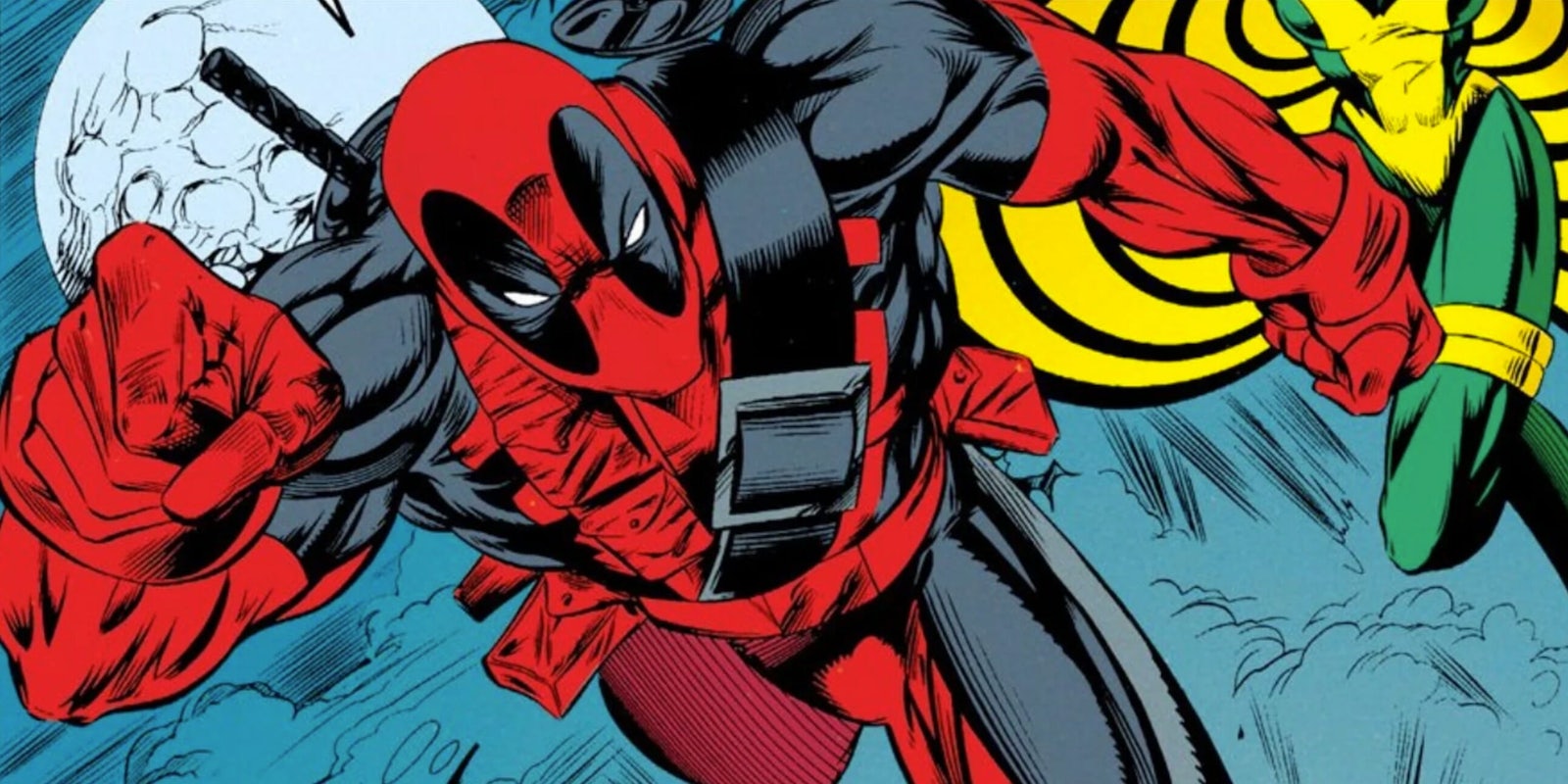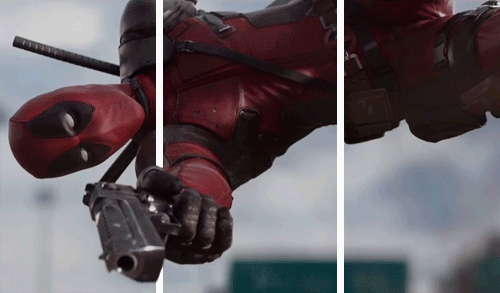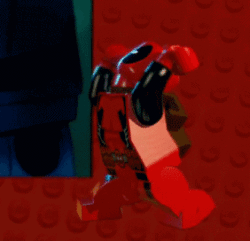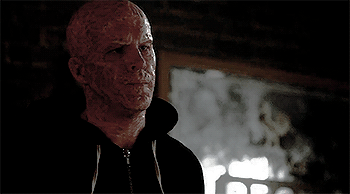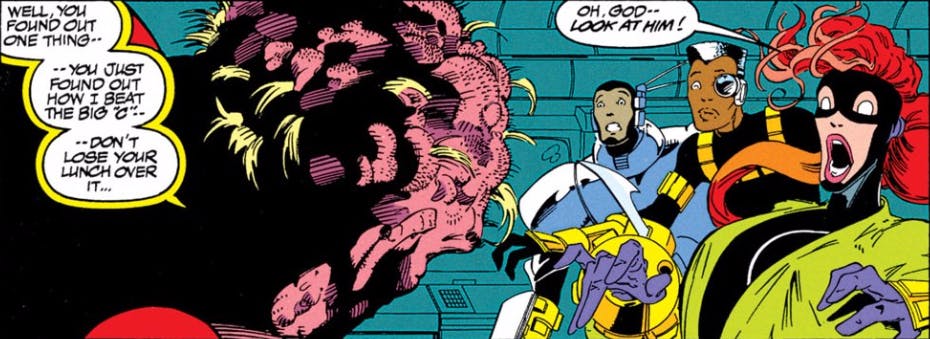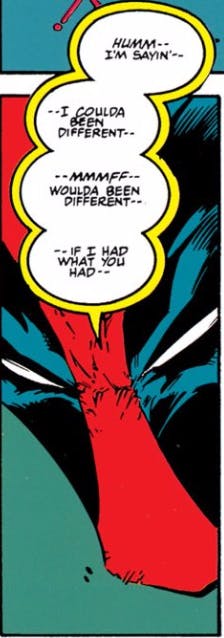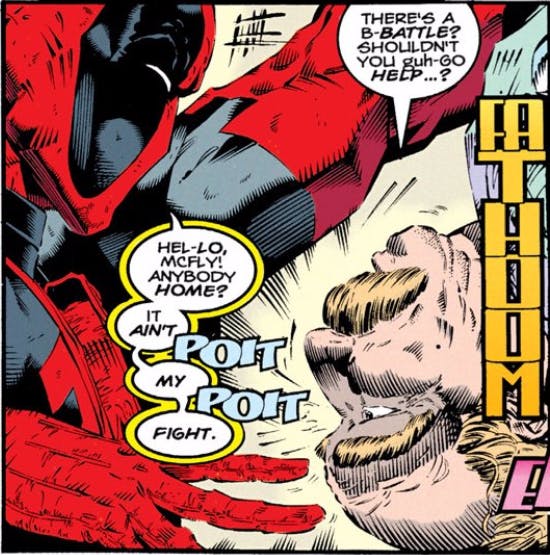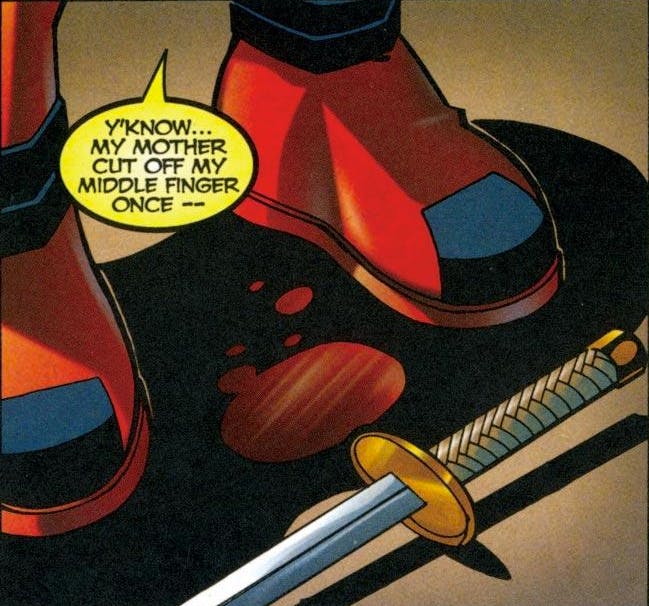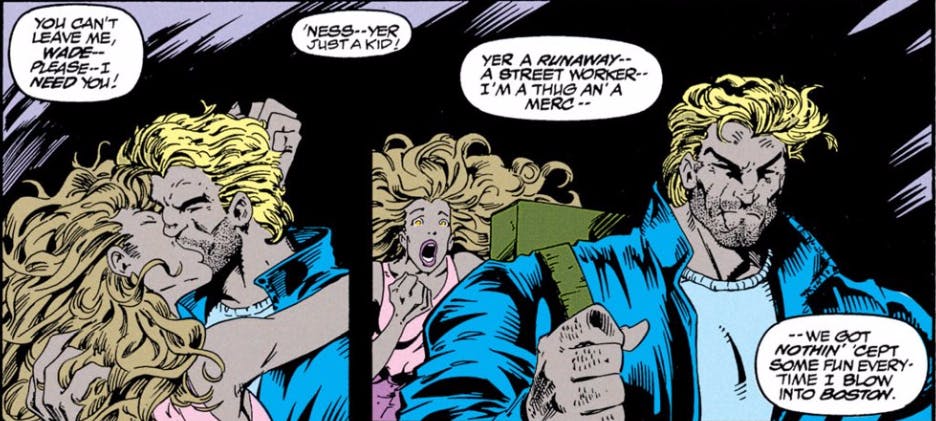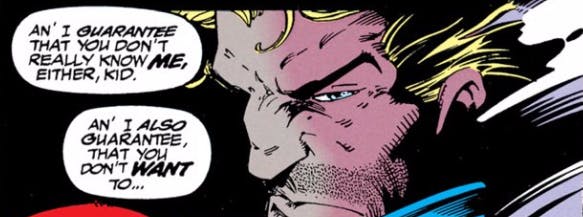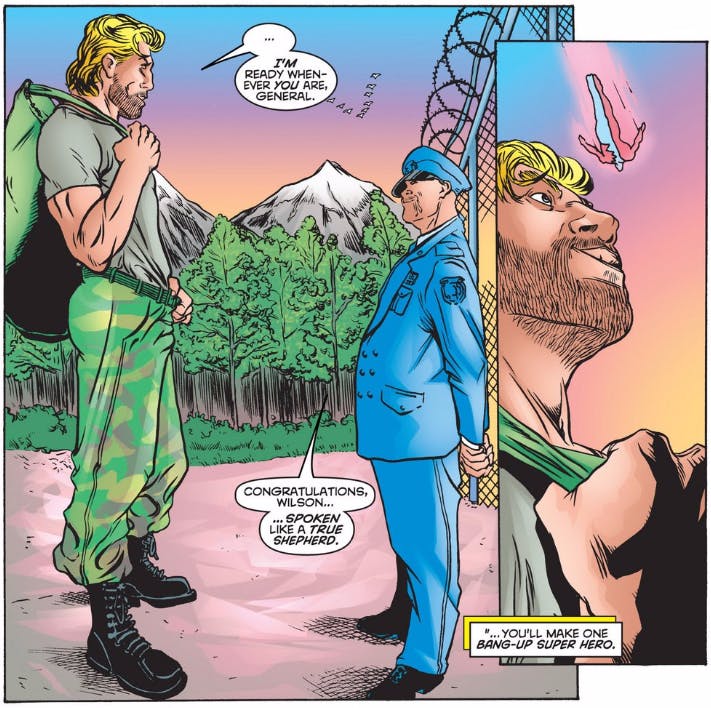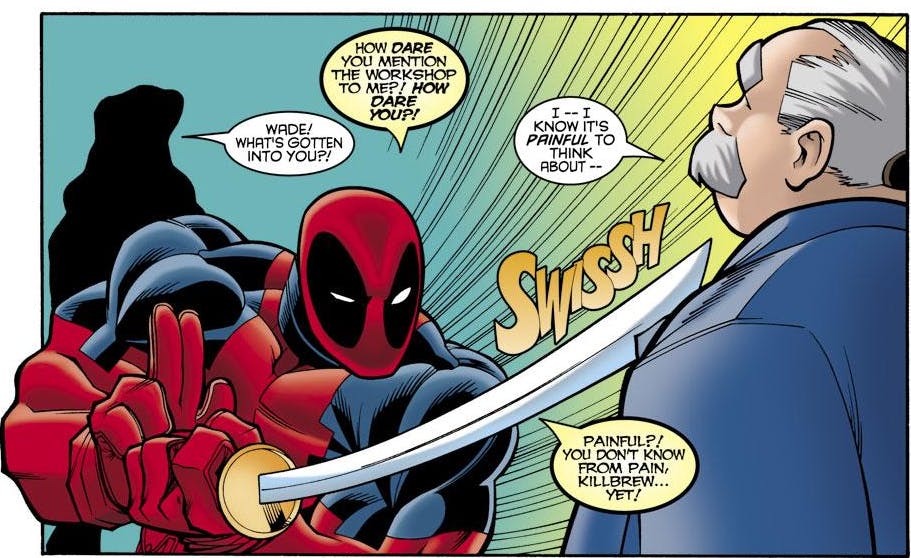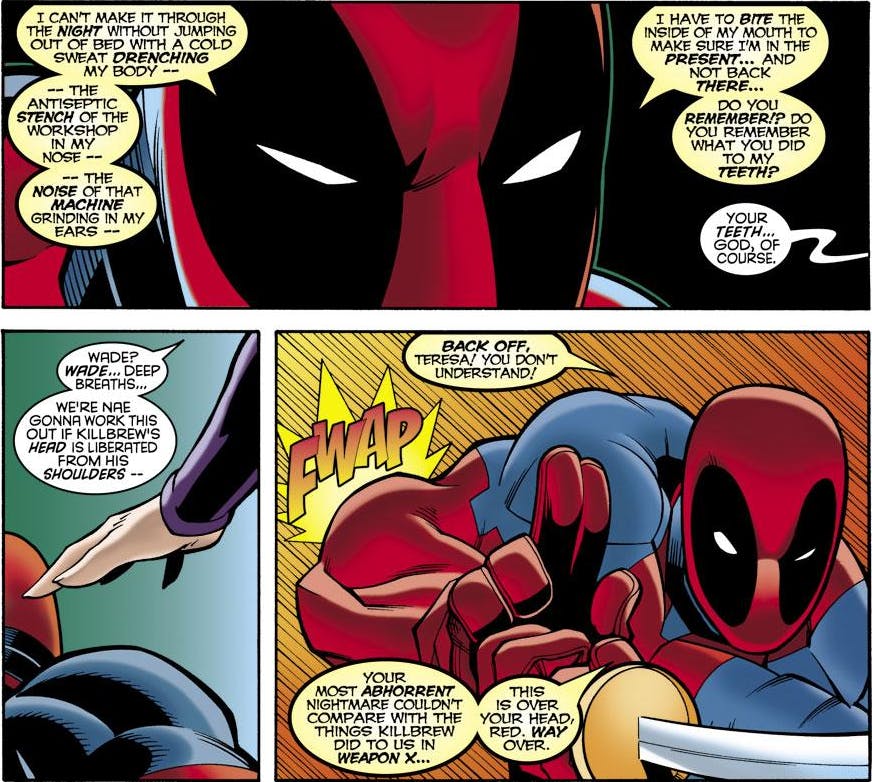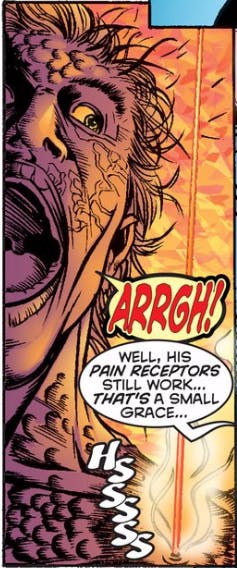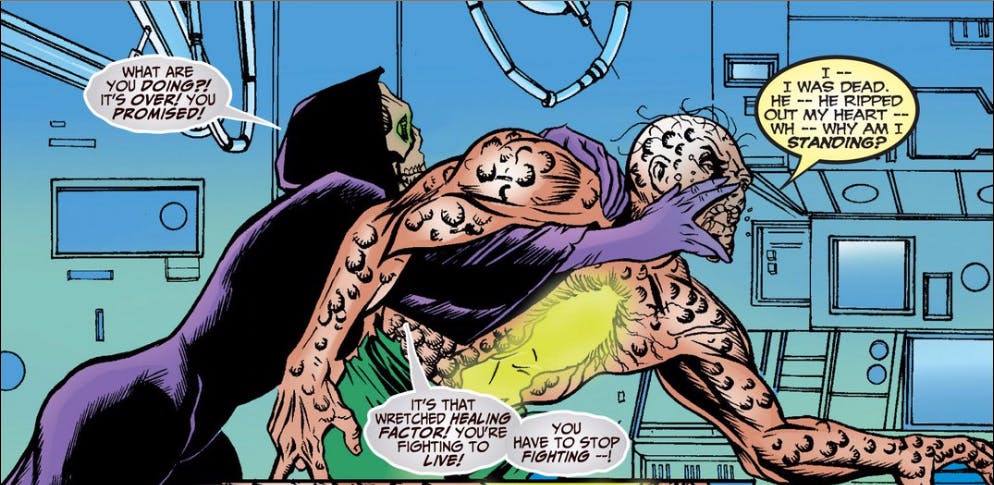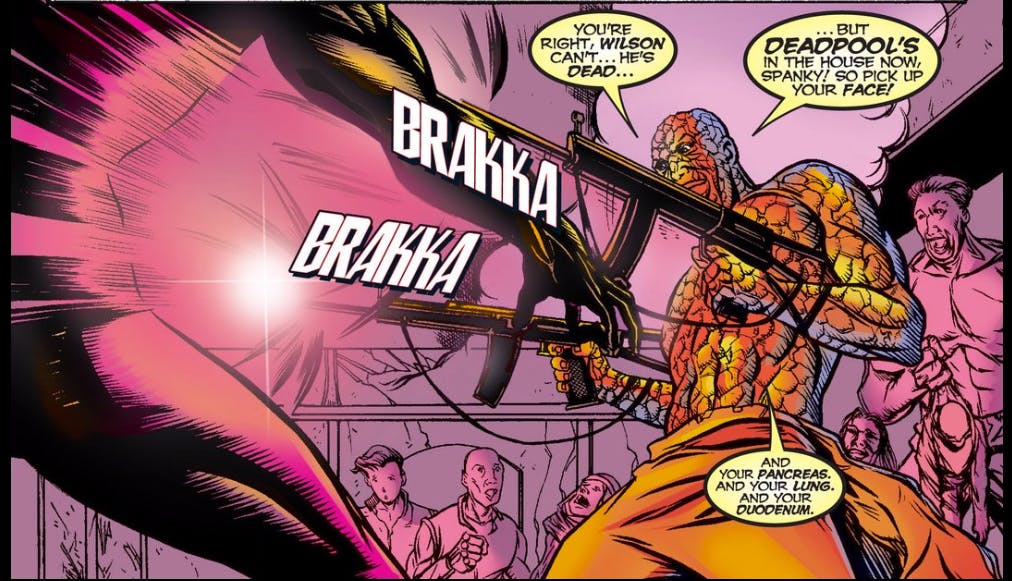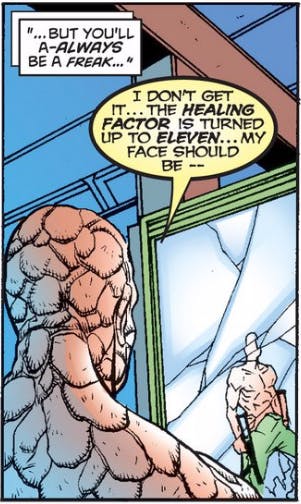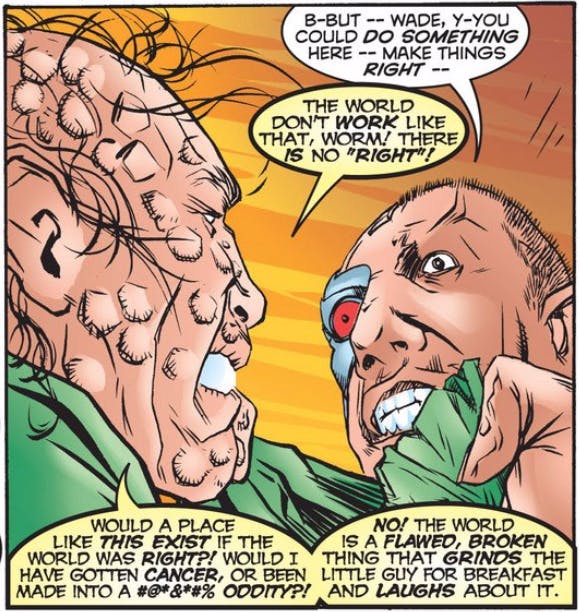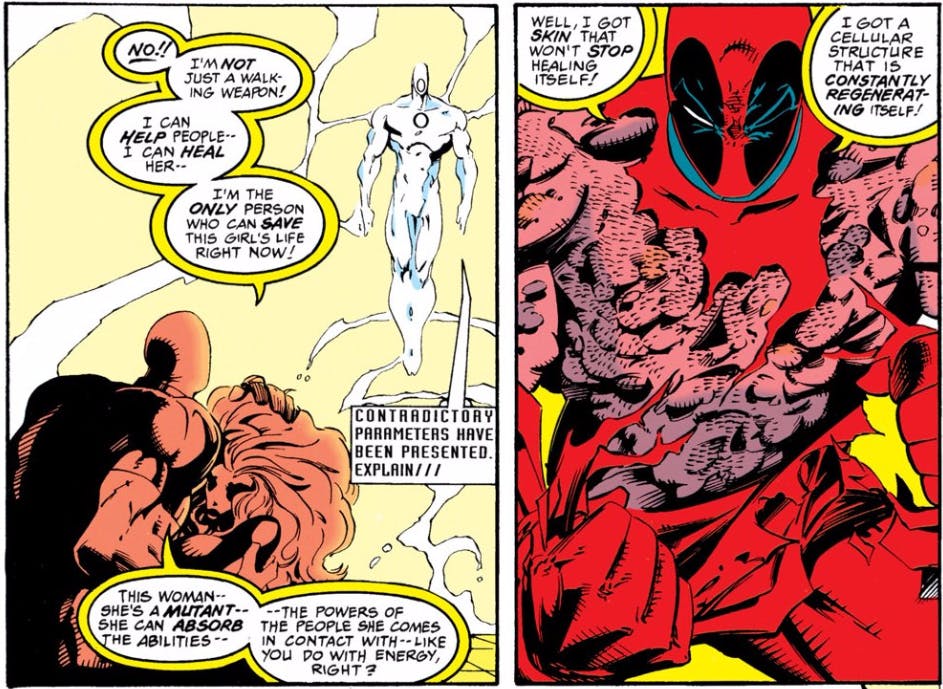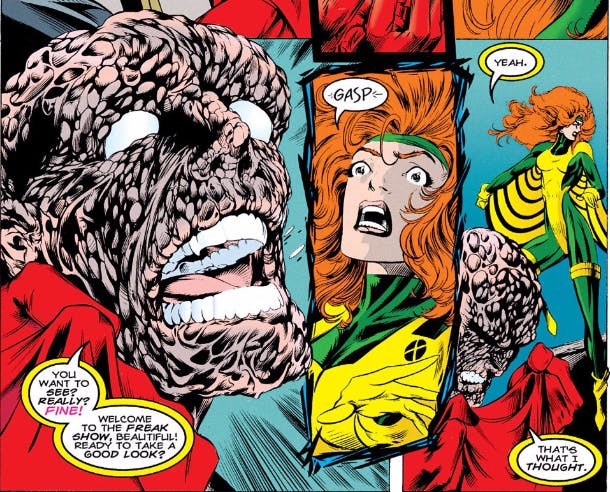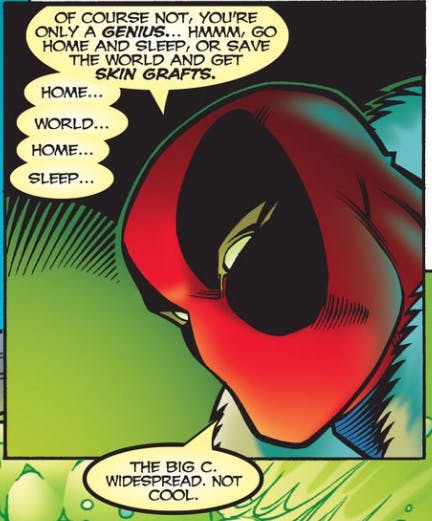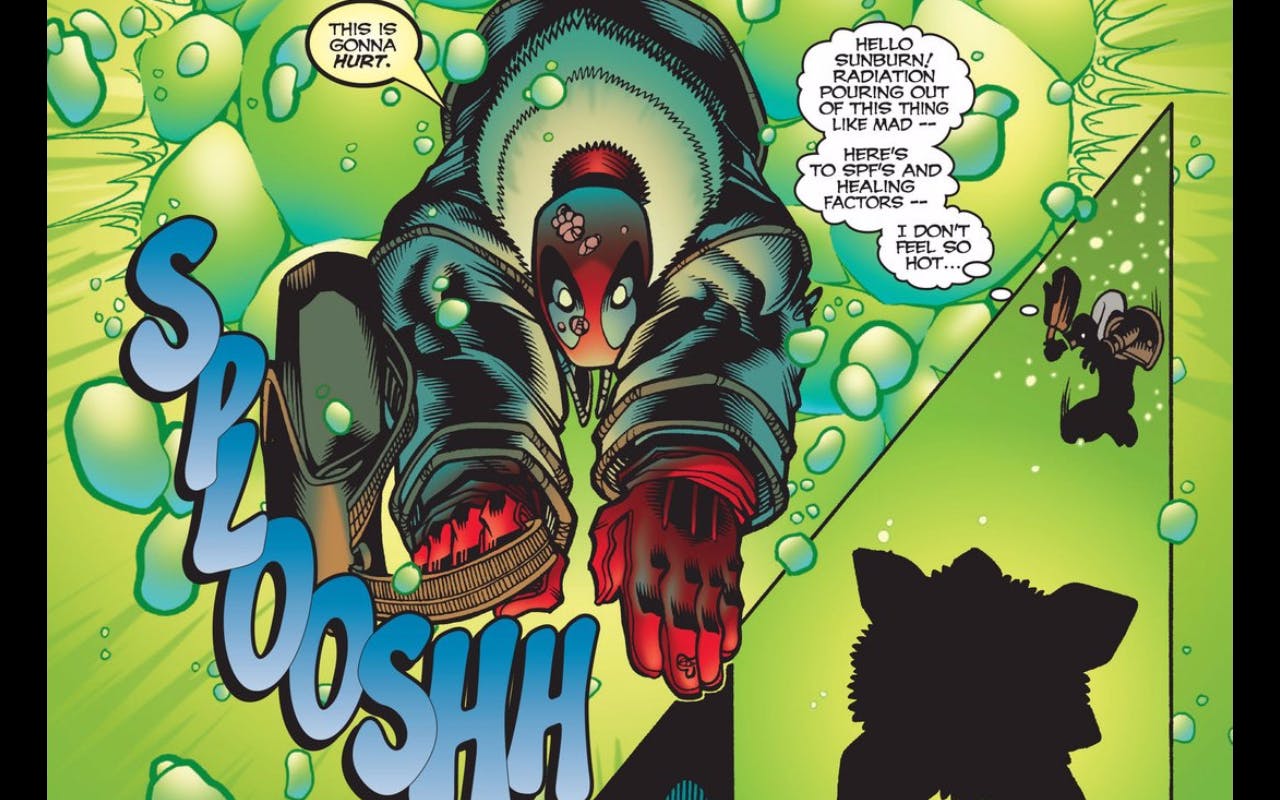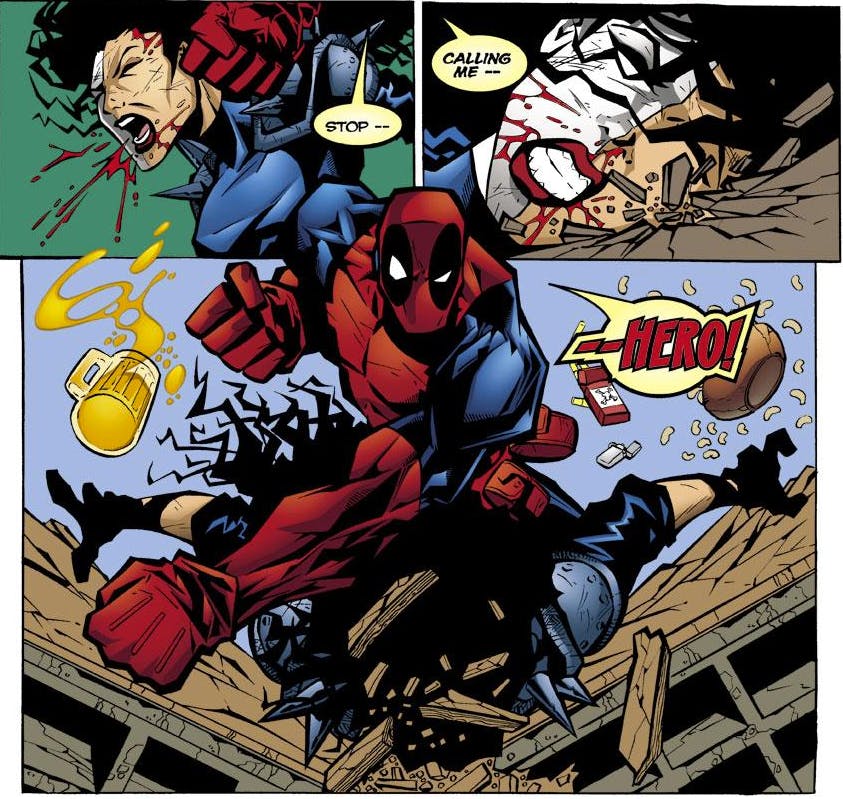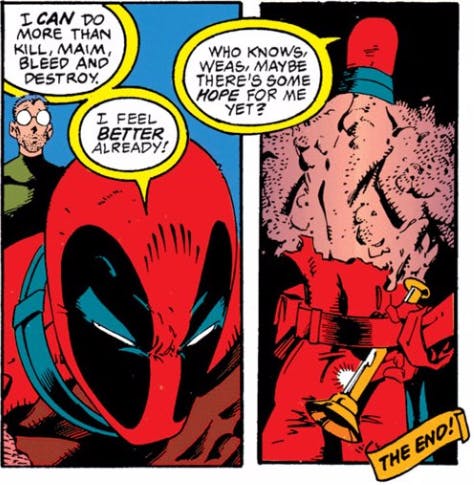Even if you’re not familiar with the Marvel character Deadpool, you’ve probably had plenty of chances to get to know his wisecracking ways and sleek red costume in the past few months.
The dude even looks good in Lego:
But hiding underneath that smooth exterior is a not-so-pretty face—like a “testicle with teeth” according to Deadpool himself.
For comparison, here’s Deadpool without his mask in the movie and the comics.
Clearly, you don’t just get a face like that by accident—not if you’re also a super-strong superhero who’s nearly impossible to kill.
So what gives?
The story in a nutshell: Deadpool has cancer, but he can’t die, so he’s permanently tumor-ridden, and quite possibly in a lot of perpetual pain.
The fuller explanation? Well, that’s a lot more complicated.
What happened to Deadpool’s face?
Deadpool’s basic character arc revolves around the question of whether he will ultimately become a hero or remain an anti-hero mired in senseless violence. From the beginning, he openly longs for redemption but feels he can’t earn it because he’s done too many bad things in his life, that he’s fated to be a “monster.” But the number of bad things Deadpool has done generally pale in comparison to the bad things that have been done to him.
When we talk about characters with tragic backstories, there’s tragic and then there’s tragic. Deadpool’s past is littered with so much pain and suffering that most characters, even the staunchest superheroes, wouldn’t be able to handle it. And Deadpool can’t really handle it either: He’s seriously mentally unstable for many of his early years in the comics; he exhibits signs of schizophrenia; and he has a few moments where he seems to “snap,” teetering on the brink of committing himself to serious sociopathic violence.
The famed sense of humor and constant snark the “Merc with a Mouth” is known for is basically Deadpool’s primary weapon against encroaching insanity: He uses relentless comedy to keep himself from totally losing it.
But there are good reasons for Deadpool’s perpetual flirtation with outright madness—beginning with his dark childhood.
Wade Wilson’s troubled past
Wade Wilson’s life essentially needs a warning for graphic abuse and violence. As a child growing up in Canada, he’s the victim of serious parental abuse.
Wade has blocked out most of his childhood memories, so it’s hard to know what parts of his story are true. But while the main series only hints at the details, Deadpool MAX tells us more than we ever wanted to know: Wade’s mother sexually abused him while his father physically abused him, after which he was put in a foster home with another mother figure who also sexually abused him. Wade escaped, but remains haunted by guilt.
(In adulthood, he again is raped—this time by Typhoid Mary, who disguises herself as X-Force member Siryn after the real Siryn rebuffs him. A traumatized Deadpool reacts by inflicting a cycle of seriously disturbed violence upon the people closest to him, as we learn in the “The Drowning Man” arc, Deadpool 1997 #12–13.)
After leaving foster care, Wade becomes a mercenary, a killer for hire, a job that takes him all over the world until he fails to complete a mission on a job in the Congo (long story). That job results in hitmen coming after his girlfriend, Vanessa, prompting Wade to disappear from her life for her own good, just he’s diagnosed with terminal cancer.
Weapon X (from bad to totally fucked up)
Before Wade can crawl away into the shadows to die, however, he’s approached by a member of the government’s mysterious Department K, creators of the “Weapon X” program. Weapon X is a secretive part of the Marvel universe known for creating Wolverine in its bid to produce biogenetically enhanced supersoldiers.
The agent offers Wade a chance to cure his cancer and become a superhero—basically his dream come true.
But instead of Wade’s salvation, the Weapon X program turns out to be a nightmare. A maniacal surgeon named Dr. Killebrew (also sometimes spelled Killbrew) injects Wade with a perpetual healing factor that fails to cure his cancer but won’t let him die. This gives him “a cellular structure that is constantly regenerating itself”—and presumably keeps him in constant, excruciating pain.
At first, the details of Wade’s time in Weapon X are left vague; but Deadpool is still suffering PTSD at the thought of Killebrew’s experiments when they meet up years later:
It’s during one of Deadpool’s darker arcs, following his rape by Typhoid Mary and attempt to grapple with the violence he committed in response, that we learn the full details of his time in Weapon X. You can find the whole story in Deadpool & Death, Annual 1998, available as an individual issue or as part of Deadpool Classic vol. 4—but not currently available from Marvel Unlimited.
At the Weapon X program, Wilson is targeted for particular torture and experimentation by Killebrew. He’s subjected to frequent injections of various healing agents and experimental drugs that leave him in constant pain and in a state of mental collapse.
READ MORE:
- 10 deadly facts about Domino, the ‘Deadpool 2’ mercenary
- 10 things you need to know about Cable, Deadpool’s time-traveling partner
- 13 funny superheroes that will make you laugh out loud
- The best superhero movies on Netflix
- The best superheroes for kids—and where to find them
It’s there that we first hear the term “deadpool”—only it’s a gambling pool by the Weapon X inmates, who are taking bets on which of their fellow inmates will be the next to die. Because of his healing factor and favored status as a torture victim by Killebrew and his sadistic assistant, Ajax, at one point the other inmates place Wade Wilson’s chances at “winning” the deadpool—i.e. dying—at 3,000 to one.
Here’s how a broken, mentally deteriorated Wade Wilson describes his own history up through the Weapon X program:
How the world works…by Me. There once was a good man who lived here. He brushed between meals (brushy brush!) He washed behind his ears. (scrubby scrub!) Did the right thing…as a reward for years of goodness–bad things happened. Too bad to remember. Bad.
Bad things led good man away from nice life and swell car into crummy job breaking noses for food. (Noses crunch like cereal…snap crackle pop) Good man got bad. Snap crackle pop. Snap. Pop. Man runs. Tired of popping. Runs. Runs smack into new life.
Fell in love with good girl in bad skin. (Bad skin trade.) Now lives in middle of the road, but sees second chance with bad skin…grabs it with both hands. The world rewards his enthusiasm with cancer. (POP!) No more girl. Man goes from middle of the road man to gutter man. Kills often. Kills well. (Snap neck. crackle spine. Pop eyes.) Bad bad bad. Kill. Then…
…Shining knight in military uniform with bad breath comes to killer man and tells him he can make cancer go away. (Cigars) Can make him into shining knight too. (Knights with cigars and no cancer.) Bad man takes this as a sign. Last chance.Drops bloody bat and grabs on with both hands. Goes to knight school. Flunks.
Now, cancer on the outside to match the inside. Bad and ugly and dying. No, not dying, sick-doc won’t let him die. (Stay-puff doc…press his belly and he laughs!) He uses tumor-man in experiments. He pokes and laughs and no one knows. No one knows. (I hear pop and crackle and snap in me) We play games with my skin. Go pop a lot. The world spins, laughing.
Snop. Packle. Crop.
Wade develops a kind of gallows humor that serves as his only form of defiance against the sadistic Weapons X operatives who torture him and the other patients. However, this strategy backfires, leading him to become a kind of hero among the other Weapon X inmates, who motivate him to fight back instead of doing what he had initially planned to do—find a way to die as quickly as possible. Instead of dying, his desire for vengeance actually activates his healing factor at death’s door, leaving him stronger than ever and able to fight back and escape the Weapon X facility.
Wade takes the moniker “Deadpool” as a grim, ironic reminder of what he overcame. But he can’t alter the way he looks: the only thing his healing factor can do for his cancer is perpetually regenerate his still-diseased cells.
This all leaves Deadpool a seriously messed-up human being. Despite being unable to die, he’s frequently suicidal, and constantly struggling with the toll life has taken on him.
Yet despite his own nihilism he perpetually tries to do what’s right, even when it involves sacrificing his own body.
Particularly in his earlier years as a character, Deadpool is super-sensitive about his face and his physical disfigurement.
Though it seems evident that Deadpool has a fairly high tolerance for pain, he also takes beatings during fights and clearly feels some pain—meaning that the cancer in his cells probably also causes him constant discomfort.
And though he doesn’t talk about it much, it’s clear that having “the big C” has taken its toll on him. In one storyline, he basically saves the world by diving into a pool of radioactive nuclear waste in order to prevent toxic chemicals from being spread throughout the Southern hemisphere and infecting most of the population with cancer.
Though we could argue that “diving into toxic waste to save humanity” kind of goes with being a superhero, Deadpool isn’t a superhero—as he’s the first to remind you.
But for someone who’s not a hero, he manages to rack up quite a number of good deeds to his name. And despite perennially winding up in the gutter, this is one antihero who seems to have his eyes fixed on the stars.

